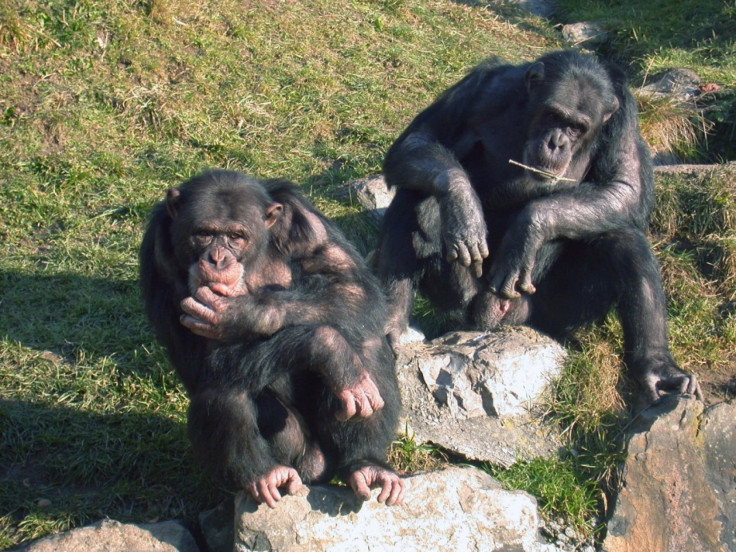Chimp Police Keep Order In Groups

Chimpanzee groups have police that intervene in conflicts, according to a new study. High-ranking chimps will intervene and break up a fight when conflict arises in their social group in order to increase group stability and promote a healthy community.
Researchers reported seeing policing in gorillas, orangutans and other primates but no studies had ever been performed on the behavior.
Primatologists from the University of Zurich observed other forms of conflict management in primates such as aggression and punishment. Policing is set apart from other methods because the interveners are neither biased nor aggressive - it is completely impartial.
Chimp communities have a hierarchy made up of high, medium, and low ranking chimps, according to the Edinburgh Zoo. The chimp at the top, the alpha male, is tasked with maintaining order within the group and protecting the other chimps.
Therefore, primatologists were surprised when they found it wasn't only the alpha male doing the policing. Females, generally lower in the hierarchy than males, would police as well.
Policing was highly effective in stopping conflicts, the authors wrote. These results suggest that the main function of policing is to maintain the group's social stability.
Chimps would break up fights by threatening the fighting chimps or running in-between them. Policing is risky because it could cause the fighting chimps to turn on the intervener, according to the study.
Policing chimps were more willing to get involved based on the severity of the conflict and the number of chimps involved. The more likely a conflict would disrupt the group's stability, the more likely it was a high-ranking chimp would intervene.
Policing is motivated by community concern and may serve as the basis for conflict management in humans, according to the study.
Policing has been seen as a precursor of human morality, the authors wrote.
Chimps are the closest living relative to humans, sharing approximately 90 percent of the same DNA.
Policing is a rare behavior and is still not well understood, according to the study. Researchers observed the behavior in the four groups observed but it has never been seen in the wild. More work needs to be done to examine policing further, the authors wrote.
PLoS ONE published the study on Wednesday.
© Copyright IBTimes 2024. All rights reserved.











